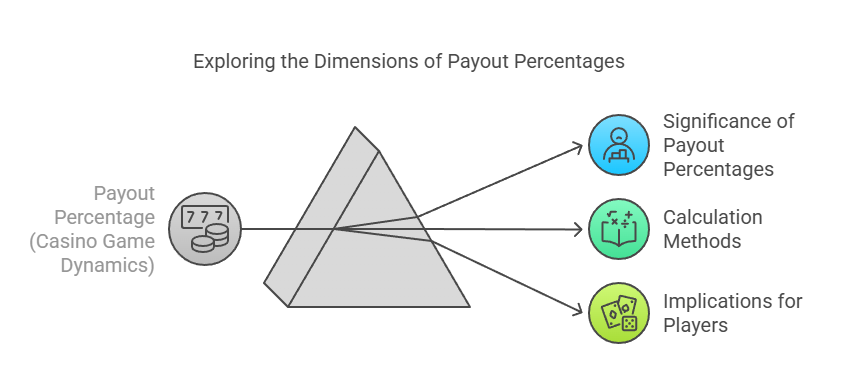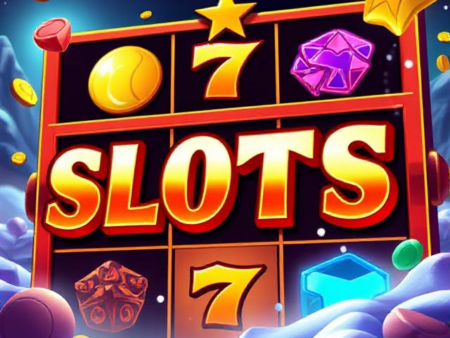
When you step into a casino, whether it’s a physical establishment or an online platform, you’re often faced with a dazzling array of games designed to tempt you into playing. From slot machines to table games like blackjack, poker, or roulette, every game has its unique set of rules and odds. One concept that often comes up in the world of gambling is the casino payout percentage. But what exactly does this term mean, and how does it affect your experience as a player? In this blog post, we’ll explore the importance of payout percentages, how they are calculated, and how they impact your chances of winning.
What is Casino Payout Percentage?
At its core, the payout percentage (often called the return to player or RTP) is the percentage of the money wagered on a casino game that is paid back to players over time. Essentially, it’s the opposite of the casino’s house edge. For example, if a game has a payout percentage of 95%, that means that, for every $100 wagered by players, the game will, on average, pay back $95 over a long period of time. The remaining $5 represents the house edge, which is the profit the casino makes from running the game.
In other words, payout percentage is a reflection of how much a casino game “returns” to players in the long run. While individual sessions and results are highly variable, the payout percentage offers a theoretical estimate of the overall expected returns over many thousands or even millions of bets.
Types of Games with Payout Percentages
The payout percentage can vary greatly depending on the type of game you play. Here’s a quick rundown of some common casino games and their typical payout percentages:
1. Slot Machines
Slot machines are one of the most popular games in both online and land-based casinos. The payout percentage of slots can vary significantly from game to game. On average, most slot machines have payout percentages ranging from 85% to 98%. This means that for every $100 wagered, a slot machine will, over time, return anywhere between $85 and $98. However, it’s essential to note that the volatility of slots can be high, meaning that while the RTP gives you a long-term expectation, short-term results can be wildly different.
Online slots tend to have higher payout percentages than their land-based counterparts. This is primarily because online casinos have fewer overhead costs, allowing them to pass on savings to players in the form of better odds.
2. Table Games (Blackjack, Roulette, etc.)
The payout percentages for table games can also vary, but many games have higher RTPs than slots. For example:
- Blackjack: The payout percentage for blackjack can be as high as 99% if you play the game with optimal strategy. In most versions of blackjack, the house edge is minimal (around 1% or lower), which translates to a high RTP. However, different rule variations can impact the payout percentage, so it’s important to check the specific rules of the blackjack variant you’re playing.
- Roulette: European roulette has a higher payout percentage (around 97.3%) than American roulette, which has a slightly lower RTP of about 94.7%. The difference is due to the number of pockets on the wheel—European roulette has one zero, while American roulette has both a single zero and a double zero, increasing the house edge.
- Craps: The payout percentage for craps can vary widely depending on the types of bets you place. The best bets (like the pass line bet) offer a payout percentage around 99%, while other bets can have much lower RTPs.
3. Video Poker
Video poker is another game with a relatively high payout percentage. The RTP of video poker machines can range from 95% to 99%, depending on the variant you play. Games like Jacks or Better and Deuces Wild have relatively high RTPs, especially if you use optimal strategy. However, like blackjack, it’s crucial to learn the right strategy to maximize your chances of winning in video poker.
Why Does Payout Percentage Matter?
Knowing the payout percentage of a game can be incredibly helpful for several reasons:
- Better Decision Making: If you want to increase your chances of winning, choosing games with higher payout percentages is a smart move. Games like blackjack, video poker, and certain types of slots tend to have better RTPs, which means your money is more likely to last longer.
- Maximizing Value: For players who enjoy maximizing their time and money, understanding payout percentages ensures that they are getting the most value from their gambling experience. Over the long term, the difference in payout percentage can have a significant impact on how much you win (or lose).
- Understanding Odds: While payout percentages give you a general sense of what to expect in the long run, it’s important to remember that they don’t guarantee short-term results. Variance plays a huge role in gambling, and individual results can differ widely from the theoretical RTP. For example, you might have a session where you lose much more than the RTP suggests, or you might get lucky and win much more.
How Are Payout Percentages Calculated?
Calculating payout percentages is a complex process that involves evaluating all possible outcomes of a game and the probabilities of those outcomes. For instance, in a slot machine, every possible combination of symbols on the reels is taken into account, along with the amount of money wagered and the payout for each combination.
In the case of table games, the payout percentages are determined by factors like the rules of the game, the number of decks used (in games like blackjack), and the types of bets that can be placed. Casinos typically work with gaming regulators and software developers to ensure that the games’ payout percentages are in line with industry standards and legal requirements.
Does the Payout Percentage Change?
For the most part, the payout percentage of a casino game remains fixed, as it is determined by the game’s design and rules. However, the RTP can change if the game’s rules or structure are altered. For example, a casino might change the rules of a blackjack game to increase the house edge, thus lowering the payout percentage. In slot machines, the payout percentage can also be adjusted by the casino, but this is typically only done in regulated settings and must be disclosed to players.
Using Payout Percentages to Your Advantage
Understanding casino payout percentages is an important step for any gambler who wants to make informed decisions. While these percentages don’t guarantee wins, they provide an important framework for understanding the odds of a particular game. Whether you’re playing slots, table games, or video poker, choosing games with higher payout percentages can increase your chances of success in the long run.
Remember, the key to enjoying your casino experience is to play responsibly and manage your expectations. Gambling is meant to be fun, and the payout percentage is just one piece of the puzzle. So, take the time to learn about the games you enjoy, understand the odds, and most importantly, have fun!













